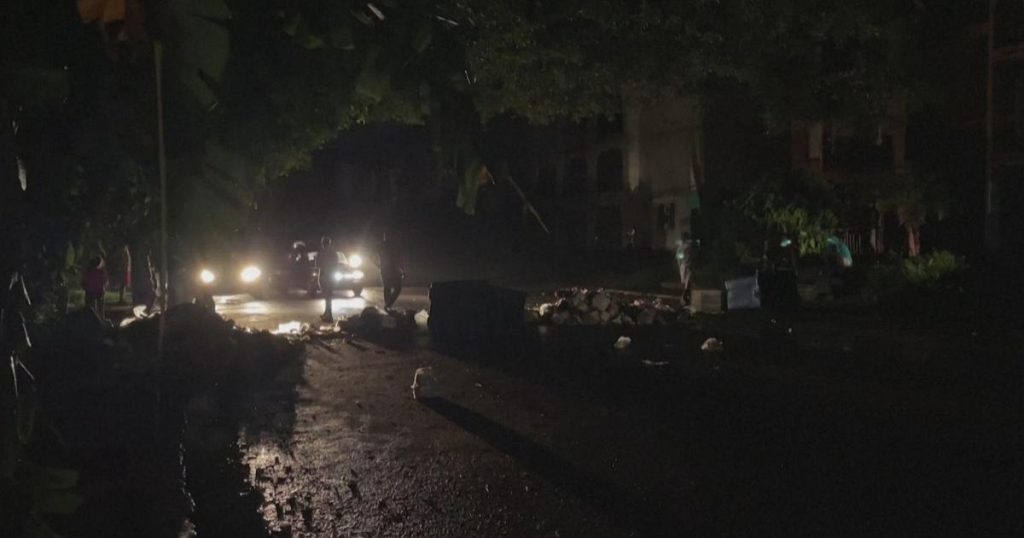The Cuban government has announced that part of the electricity in Cuba has been restored after the worst blackout in the island nation in at least two years left millions of people without power for two days. Energy Minister Vicente de la O Levy stated that the country had 500 megawatts in its electrical grid at dawn yesterday, compared to the usual 3 gigawatts generated. On social media, the minister wrote that “several substations in the west now have electricity.” De la O Levy also mentioned that two thermal power plants have resumed operations and two others will be back online “in the next few hours.” The Havana Electric Company stated in a press release yesterday that part of the system was disconnected “after one of the plants providing the service collapsed.” This issue left some areas of the city in darkness once again, with a decrease in total megawatts from 500 to 370.
The blackout in Cuba has caused significant disruption and inconvenience to residents, with businesses forced to close, public transportation affected, and people unable to carry out daily activities. Many have voiced their frustration and concern over the situation, calling for the government to take immediate action to prevent future blackouts. The Cuban government has been facing challenges in maintaining a stable electricity supply due to various factors, including outdated infrastructure, lack of investment, and dependence on imported oil for power generation. The recent blackout has highlighted the need for long-term solutions to address these underlying issues and ensure reliable electricity for the population.
Despite the efforts to restore electricity in parts of Cuba, there are still areas experiencing ongoing power outages, with residents left in the dark and struggling to cope with the situation. The government has been working to address the technical problems and repair the damaged power plants in order to bring the grid back to full capacity. However, the process may take time, and it is important for authorities to communicate transparently with the public about the situation and provide support to those affected by the blackouts. Communities are coming together to help each other and find ways to cope with the challenges of living without electricity for an extended period.
The Cuban government is also exploring alternative energy sources to reduce its dependence on imported oil and increase the resilience of the electrical grid. Renewable energy options such as solar and wind power are being considered as part of a long-term strategy to diversify the energy mix and improve sustainability. Investing in modernizing the infrastructure and incorporating smart grid technologies can also help to enhance the efficiency and reliability of the electricity system. By adopting a more sustainable approach to energy generation and distribution, Cuba can reduce the risk of future blackouts and ensure a more stable power supply for its population.
In the meantime, residents in Cuba are adapting to the ongoing power outages by using alternative lighting sources, conserving energy, and adjusting their daily routines to minimize the impact of the blackouts. The situation has highlighted the resilience and resourcefulness of the Cuban people in the face of adversity, as they come together to support each other and find ways to overcome the challenges posed by the power cuts. Communication channels are playing a key role in keeping the public informed and providing updates on the progress of restoring electricity. It is essential for authorities to work closely with communities and stakeholders to address the root causes of the blackout and implement effective measures to prevent similar incidents in the future.
Overall, the recent blackout in Cuba has demonstrated the vulnerabilities of the country’s electrical grid and the need for comprehensive solutions to ensure a reliable and sustainable power supply for the population. While the government is working to restore electricity and address the immediate challenges, it is crucial to also focus on long-term strategies to modernize the infrastructure, diversify energy sources, and enhance the resilience of the grid. By investing in renewable energy and smart grid technologies, Cuba can build a more stable and efficient electricity system that meets the needs of its residents and reduces the risk of future blackouts. The current situation calls for collaboration and innovation to overcome the energy challenges facing the country and build a more sustainable future for all.


